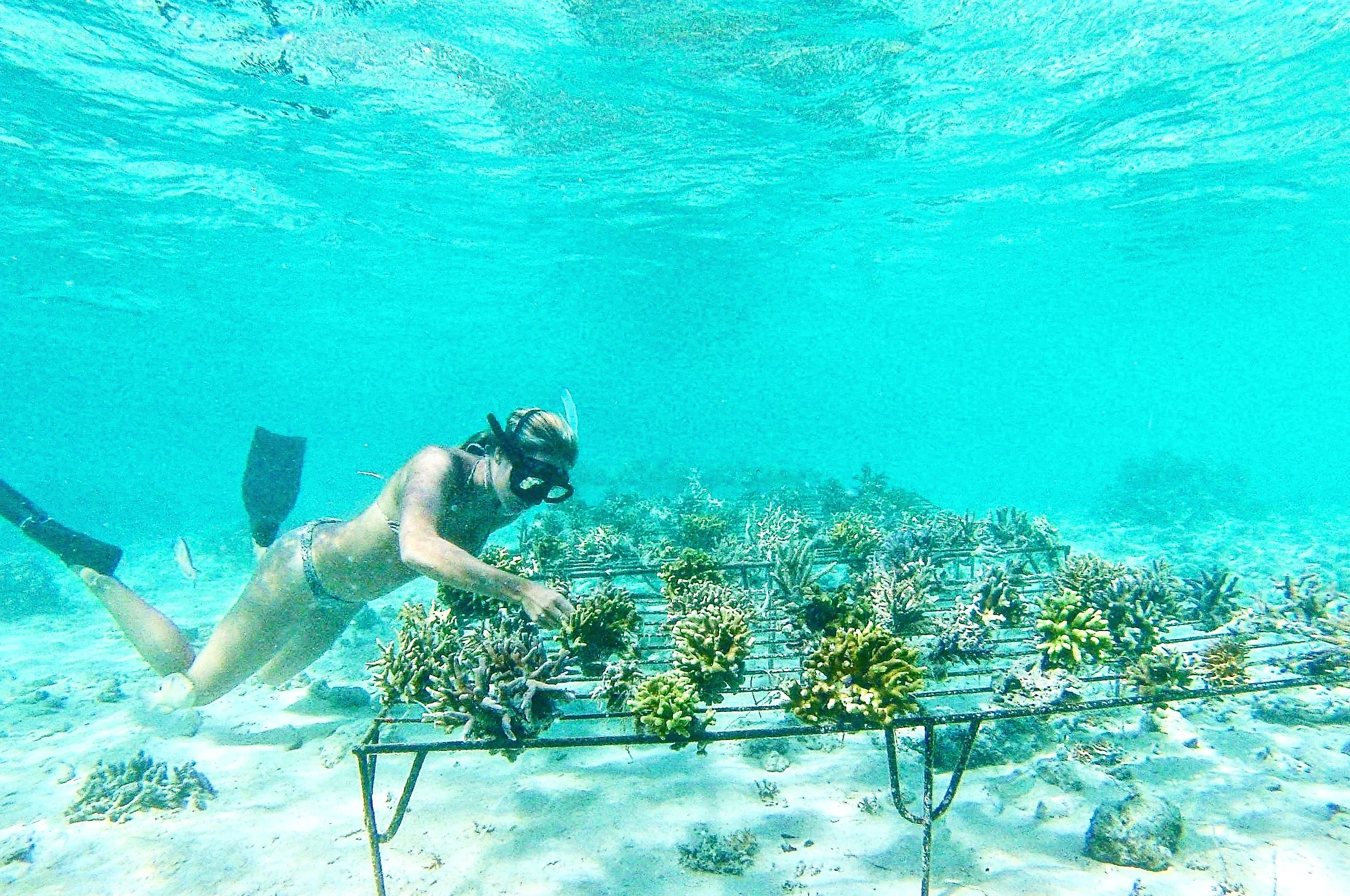More than 50% of all species on Earth are found under the ocean. Scientists at NOAA estimate that the ocean produces 50-80% of the world’s oxygen and absorbs 50 times more carbon dioxide than the atmosphere. The ocean helps sustain human life.
Coral reefs are structures created by coral animals and are among the most biologically diverse ecosystems on the planet. They provide goods and services worth at least US$11.9 trillion per year and support (through such activities as fisheries and tourism) at least 500 million people worldwide.
Surrounded by the ocean, the Hawaiian Archipelago stretches 1500 miles NW to SE and includes 132 islands, atolls, reefs, and shoals. Hawaii has a unique marine ecosystem; 25% of our marine species are endemic, meaning they are only found in Hawaii and nowhere else in the world. Hawaii is home to 80% of all coral reefs in the United States. The main Hawaiian islands are surrounded by almost 410,000 acres of coral reefs. Hawaii’s ocean industry, including ocean recreation, generates over $3 billion annually in gross revenues to Hawaii’s economy. Source: DLNR
In the United States alone, there are over 95,000 miles of shoreline. More than half of the U.S. population lives within 50 miles of the coast in the narrow area of land known as the "coastal zone."
From larger, populated islands like Oahu to small, remote islands like Jarvis, the reefs surrounding islands and atolls in the Pacific are impacted by changes in the surrounding ocean and terrestrial watersheds. Everything that starts on land or in the air can impact the health of the coral reefs. Source: NOAA
In 2018 Dr. Gregory Hodgson founder of the Reef Check Foundation in conjunction other scientist, ISRS and IYOR published a document on the current state of coral reefs worldwide. These scientist state that “Coral reefs are structures created by coral animals and are among the most biologically diverse ecosystems on the planet. They provide goods and services worth at least US$11.9 trillion per year and support (through such activities as fisheries and tourism) at least 500 million people worldwide. Potent anti-cancer drugs have been derived from coral reef organisms, and others are in testing; healthy coral reefs could save millions of lives.
Coral reefs, however, are being eliminated from the planet rapidly by climate change. In particular, increasing sea temperatures have already caused widespread coral bleaching and mortality. In addition, elevated carbon dioxide levels are causing ocean acidification that may further accelerate coral reef loss.
Over recent decades, worldwide, over 50% of living coral has been lost on coral reefs due to a combination of local factors and global climate change. In 2016-17 bleaching alone caused the loss of half the shallow water corals on the northern 700 km of the Great Barrier Reef and substantial damage elsewhere. Recovery from such events is a decades-long process. With bleaching now frequent, reefs have little time to rebuild.
As a result of reef ecosystem destruction, a quarter of all marine species are at risk, while the associated economic losses will expose hundreds of millions of people to decreasing food security and increased poverty.”
Read the entire article here: http://coralreefs.org/wp-content/uploads/2014/03/ISRS-Consensus-Statement-on-Coral-Bleaching-Climate-Change-FINAL-14Oct2015-HR.pdf

